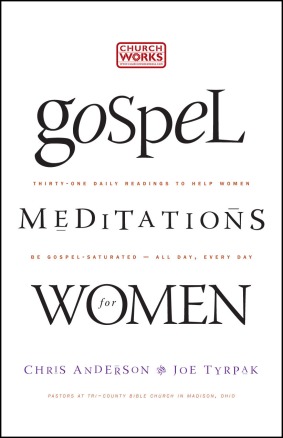I have Baker’s 8-book set of Martin Luther’s sermons, and I’ll read one on occasion when it addresses a text I’m preaching. Now, I love Luther, but his sermons have generally underwhelmed me. That changed this week in a big way.
I read his message on Titus 2:11-14 and exulted both in the doctrines the text puts forth and in his masterful understanding of them. Wonderful! Fortunately, this great sermon is available on-line here. What a great way to spend an hour on Reformation Day! Give it a read!
Without meandering from the text, Luther waxes eloquent on salvation & sanctification by grace, on the folly of monasticism, on pastoral ministry, on human depravity, on Christ’s return, on the sufficiency of Scripture, etc. It’s rich, especially considering the setting in which it was written! Sure, he whiffs on Purgatory, but he knows better now.
Here are some highlights, many of which I wove into my sermon this morning:
Luther on Monasticism, Asceticism & Indwelling Sin
15. Further, Paul speaks of “denying,” or renouncing. Therein he rejects many foolish expedients devised by men for attaining righteousness. Some run to the wilderness, some into cloisters. Others separate themselves from society, presuming by bodily flight to run away from ungodliness and worldly lusts. Yet others resort to tortures and injuries of the body, imposing upon themselves excessive hunger, thirst, wakefulness, labor, uncomfortable apparel. Now, if ungodliness and worldly lusts were but something painted upon the wall, you might escape them by running out of the house; if they were knit into a red coat, you might pull off the coat and don a gray one; did they grow in your hair, you might have it shaved off and wear a bald pate; were they baked in the bread, you might eat roots instead. But since they inhere in your heart and permeate you through and through, where can you flee that you will not carry them with you? What can you wear under which you will escape them? What will you eat and drink wherein they will not be with you? In a word, what can you do to escape yourself, since you cannot get out of yourself? Dear man, the great temptations are within you. To run away from them would necessitate, first, fleeing from yourself. James says (ch 1, 14), “Each man is tempted, when he is driven away by his own lust, and enticed.”
16. The apostle means, not simply that we must flee the outward temptations to sin, but, as he says, that we must “deny” them, must mortify the lusts, or desires, within ourselves. Our lusts being mortified, no external temptation can harm….
17. We read of an ancient father who, unable to endure temptation in a cloister, left it that he might in the wilderness serve God in peace. But in the desert one day his little water-jug overturned. He set it up, but it overturned a second time. Becoming enraged, he dashed the vessel into pieces. Then, saying within himself, “Since I cannot find peace when alone, the defect must be in myself,” he returned to the cloister to suffer temptations, from that time forward teaching that we must obtain the victory, not by fleeing worldly lusts, but by denying them.
20. You see now the manner of good works advocated by the apostle. He does not require us to make pilgrimages; he does not forbid certain foods; nor does he prescribe a particular garb, nor certain fast days. His teaching is not that of the class who, in obedience to human laws, separate themselves from men, basing their spirituality and goodness upon the peculiarity of their garb and diet, their manner of wearing the hair, their observance of times; who seek to become righteous by not conforming to custom in the matter of clothing, diet, occupation, seasons and movements. They are given an appropriate name in the Gospel–“pharisaei,” meaning “excluded” or “separated.” In Psalm 80, 13, the prophet calls them “monios,” signifying “a solitary one.” The name primarily is applied to a wild hog of solitary habits. We shall hereafter designate this class as “solitary.” As the psalmist complains, they make terrible havoc of God’s vineyard. These pharisees, or solitary ones, make great show with their traditions, their peculiar garb, their meats, days and physical attitudes. They easily draw away the multitude from the common customs of life to their ways. As Christ tells us (Mt 24, 24), even the elect can scarce resist them.
33. “Then it must be,” you say, “that few lead godly lives, particularly among those solitary, spiritual ones who above all men flee death and the judgment.” That is just what I have said. These separated individuals simply lead themselves and others from the true path, obliterating the ways marked out of God.
(From #37) In reality they do avoid the outward act of transgression, being restrained by prohibitions, or fear of pain and penalty, or expectation of reward or gain. But this is only ridding of the scum of unrighteousness; the heart remains filled with ungodly, unregenerate inclination and worldly lusts, and neither body nor soul righteous.
Luther on Salvation by Grace, through Faith, not of Works
28. Note, such obedience to God is real, divine service. For this service we need no bells nor churches, no vessels nor ornaments. Lights and candles are not necessary; neither are organs and singing, images and pictures, tables and altars. We require not bald pates nor caps, not incense nor sprinkling, not processions nor handling of the cross; neither are indulgences nor briefs essential. All these are human inventions, mere matters of taste. God does not regard them, and too often they obscure with their glitter the true service of God. Only one thing is necessary to right service–the Gospel. Let the Gospel be properly urged; through it let divine service be made known to the people. The Gospel is the true bell, the true organ, for divine service.
39. The things the apostle has been so carefully presenting are laid before you to enable you to perceive and acknowledge your helplessness, to utterly despair of your own power, that you may sincerely humble yourself and recognize your vanity, and your ungodliness, impiety and unsaved state. Note, the grace appearing through the Gospel teaches humility; and being humbled, one desires grace and is disposed to seek salvation. Wherever a humble desire for grace exists, there is open to you the door of grace. The desire cannot be without provision for its fulfilment. Peter says (I Pet 5, 5), “God resisteth the proud, but giveth grace to the humble.” And Christ frequently in the Gospel declares: “Whosoever shall exalt himself shall be humbled; and whosoever shall humble himself shall be exalted.”
40. So the blessed Gospel is presented to you. It permits saving grace to appear in and shine forth from you, teaching you what more is required to keep you from falling into despair. Now, the Gospel, the appearance of the light of grace, is this which the apostle here declares, namely, that Christ gave himself for us, etc. Therefore, hearken to the Gospel; open the windows of your heart and let saving grace shine forth, to enlighten and teach you. This truth, that Christ gave himself for us, is the message spoken of as proclaimed to all men. It is the explanation of what is meant by the appearing of grace.
(From #41) So we are to despair of our own efforts and cleave to Christ, relying upon him alone. Gracious, indeed, and comforting is this message, and readily welcomed by hearts despairing of their own efforts. “Evangelium,” or Gospel, implies a loving, kind, gracious message, fitted to gladden and cheer a sorrowing and terrified heart.
59. Before the testimony of this text, all hypocrites, all ecclesiastics, must lie prostrate in defeat, no matter how much they may have fasted, prayed, watched and toiled. These exertions will avail naught; ungodliness and worldly lusts will still survive in them. Though shame may cause them to conceal evil expression, the heart is still impure. Could our works, apparel, cloisters, fasting and prayers render us godly, the apostle might more properly have said that a prayer or a fast, a pilgrimage or an order, or something else, had appeared teaching us to be godly. But emphatically it is none of these; it is the appearing of saving grace. This, this alone, nothing else, renders us godly.
60. The danger and error of human laws, orders, sects, vows, and so on, is easily apparent. For they are not grace; they are merely works, by their false appearance leading the whole world into error, distress and misery. Under their influence, the world forgets grace and faith, and looks for godliness and happiness in these errors.
Luther on Sanctification by Grace
(From #33) And we see how necessary is saving grace. For when our own works are abandoned, God comes and alone works in us, enabling us to rise from ourselves, from our ungodly conduct, to a supernatural, grace-filled, godly life.
34. True godliness, you note, is not taught by human nature or mortal reason, but by the manifest grace of God. By grace are we enabled to deny worldly lusts, even to feel aversion to them, to desire liberation from them, to be dissatisfied with our manner of life in general. More than that, it creates in us a disposition essential to godliness, a disposition to entreat God with perfect confidence and to await with pleasure his coming. So should we be disposed.
(From #47) [T]hrough faith Christ redeems us from all unrighteousness. He liberates us, enabling us to live godly and heavenly, a power we had not when in the prison of unrighteousness.
Luther on Purgatory — (This is Fascinating. Oops.)
30. Many depend upon purgatory, living as it pleases them to the end and expecting to profit by vigils and soulmasses after death. Truly, they will fail to receive profit therein. It were well had purgatory never been conceived of. Belief in purgatory suppresses much good, establishes many cloisters and monasteries and employs numerous priests and monks. It is a serious drawback to these three features of Christian living: soberness, righteousness and godliness. Moreover, God has not commanded, nor even mentioned, purgatory. The doctrine is wholly, or for the most part, deception; God pardon me if I am wrong. It is, to say the least, dangerous to accept, to build upon, anything not designated by God, when it is all we can do to stand in building upon the institutions of God which can never waver. The injunction of Paul to live rightly in this present world is truly a severe thrust at purgatory. He would not have us jeopardize our faith. Not that I, at this late day (when we write 1522), deny the existence of purgatory; but it is dangerous to preach it, whatever of truth there may be in the doctrine, because the Word of God, the Scriptures, make no mention of a purgatory.
Luther on Righteous Living in a Wicked World
(From #31) To live right in this present world, mark you, is like living soberly in a saloon, chastely in a brothel, godly in a gaiety hall, uprightly in a den of murderers…Life being subject to so many evils, its only hope is in being led by grace.
49. Afterward [after salvation], the effort of our entire lives should be to purge from body and soul unrighteous, unregenerate, and worldly conduct. Until death our lives should be nothing but purification.
Luther on Our Blessed Hope
37. The words of this verse afford comfort to all who live soberly, righteously and godly. For the apostle therein declares the coming glory, not of our enemy or judge, but of our Saviour, Jesus Christ, who will at that time give us perfect happiness. For the day of that glorious appearing he will make the occasion of our liberation from this world wherein we must endure so much in the effort to lead a godly life in response to his will. In view of his coming and our great and glorious redemption, we ought firmly and cheerfully to bear up under the persecution, murders, shame and misfortunes the world effects, and to be courageous in the midst of death. With these joys before us, we ought the more steadfastly to persevere in a godly life, boldly relying upon the Saviour, Jesus Christ.
Luther on Obtaining Salvation – His Evangelistic Application
42. Take heed to believe true what the the Gospel, declares–that Christ gave himself for you for the sake of redeeming you from all unrighteousness and of purifying you for a peculiar inheritance. It follows that, in the first place, you must believe and confess all your efforts, impure, unrighteous; and that your human nature, reason, art and free-will are ineffectual apart from Christ. Unless you so believe, you make void the Gospel; for, according to the Gospel, Christ did not give himself for the righteous and the pure. Why should he? With righteousness and purity existent, he would be giving himself in vain. It would be a senseless giving.
In the second place, you must believe that Christ gave himself for you, to put away your impurity and unrighteousness and make you pure and righteous in himself. If you believe this, it will be so. Faith will accomplish it. The fact that he gave himself for you can make you pure and righteous only through faith on your part. Peter (Acts 15, 9) speaks of the cleansing of hearts by faith. Observe, Christ is not put into your hand, not given you in a coffer, not placed in your bosom nor in your mouth. He is presented to you through the Word, the Gospel; he is held up before your heart, through the ears he is offered to you, as the Being who gave himself for you–for your unrighteousness and impurity. Only with your heart can you receive him. And your heart receives when it responds to your opened mind, saying, “Yes, I believe.” Thus through the medium of the Gospel Christ penetrates your heart by way of your hearing, and dwells there by your faith. Then are you pure and righteous; not by your own efforts, but in consequence of the guest received into your heart through faith. How rich and precious these blessings!
Luther on the Believer’s Security
44. How can death and the day of judgment terrify the heart that receives Christ? Who shall injure such a one when the great God and Saviour, Jesus Christ, who orders the day of judgment, stands by with all his glory, greatness, majesty and might? He who gave himself for us, he and no other, will control that day. Assuredly he will not deny his own testimony, but will verify your faith by declaring he gave himself for your sins. And what have you to fear from sin when the judge himself owns he has taken it away by his own sacrifice? Who will accuse you? Who may judge the judge? who exercise authority over him? His power outweighs that of all the world with its sins innumerable. Had he purchased your salvation with anything but himself, there might be great error in this doctrine. But what can terrify when he has given himself for you? He would have to condemn himself before sin could condemn the souls for whom he died.
45. Here is strong, unquestionable security.
Luther on Depravity / Inability
46. He gave himself to redeem–not himself, but us. Evidently, we are naturally captives. Then how can we be presumptuous and ungrateful enough to attribute so much merit to our free-will and our natural reason? If we claim there is aught in us not bound in sin, we disparage the grace whereby, according to the Gospel, we are redeemed. Who can do any good thing while captive in sin, while wholly unrighteous? Our own efforts may seem to us good, but in truth they are not; otherwise, the Gospel of Christ must be false.
56. Again, Paul’s reference to saving grace clearly indicates that whatever is devoid of grace is already condemned and beyond the power of procuring help and salvation. Where, then, is free will? Where are human virtues, human reason and opinions? All are without saving grace, all are condemned, sinful and shameful before God, even though precious in our sight.
Luther on Pastoral Ministry
52. Truly, 0 Lord God, it is a vital charge, this–not only to preach the principles taught in this lesson, but continually to urge, admonish and arouse the people, leading them to faith and actually good works. Though we may have taught, we must follow it up with persevering exhortation, that the Word of God may have its sway.
54. Note, the office of a minister calls for two things–teaching and exhortation. We must teach the uninformed, and must admonish the already informed lest they go backward, grow indolent or fall away entirely instead of persevering against all temptations.
(From #58) In this way, mark you, we should use the Scriptures as armor against false teachers. Not only are they for the exercise of our faith in our daily living, but for the open defense and battle of faith against the attacks of error.
1. It is written in the book of Nehemiah (ch 4) that the Jews, in rebuilding Jerusalem, wrought with one hand and with the other held the sword, because of the enemy who sought to hinder the building. Paul in Titus 1, 9 carries out the thought of the symbol in this teaching that a bishop, a pastor, or a preacher, should be mighty in the Holy Scriptures to instruct and admonish as well, as to resist the gainsayers. Accordingly, we are to make a twofold use of the Word of God: as both bread and weapon; for feeding and for resisting; in peace and in war. With one hand we must build, improve, teach and feed all Christendom; with the other, oppose the devil, the heretics, the world. For where the pasture is not defended, the devil will soon destroy it; he is bitterly opposed to God’s Word. Let us then, God granting us his grace, so handle the Gospel that not only shall the souls of men be fed, but men shall learn to put on that Gospel as armor and fight their enemies. Thus shall it furnish both pasture and weapons.
Luther on Sola Scriptura
53. 0 Pope, bishops, priests and monks now flooding the Church with fables and human doctrines, let these things sink into your minds. You will have more than enough to preach if you attempt only what this text contains, provided you continually admonish the people and enforce it. It beautifully portrays the life of the Christian. Its teaching, and only this, are you to preach and enforce. God grant it! Amen.
64. Once more, a strong argument against human doctrine is afforded us in Paul’s words, “These things speak and exhort.” Had Paul designed anything further to be taught than the things he mentions, he surely would have said so. Our bishops and popes today think they have done enough when they permit these Paul’s injunctions to be written in books and on slips of paper, enforcing them by no commands of their own; but the fact is, their own voices should be heard in constant preaching and enforcing of the Gospel. Woe unto them!
Filed under: Notable Quotes, Web Gems |










Check out Luther’s “Commentary on Romans”. It will be one of the greatest theological reads of your life! Glad you’re back!
Next to Scripture, of course!
That bit abouot purgatory was interesting. It must have been hard to purge himself of the strange doctrines he had been taught by Roman Catholicism.
Hey, Andy. Sorry I haven’t replied ’til now.
I agree that it’s a Catholicism hang-over. And, as you suggest, we need to cut him some slack & appreciate what he did recognize as erroneous. Still, it’s almost comical to read:
Wha….???